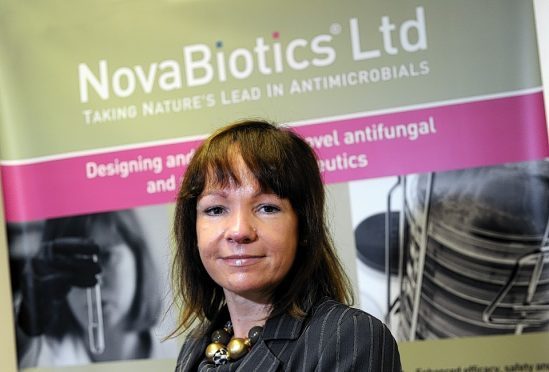An Aberdeen based pioneer of microbe-fighting therapeutic treatments has urged specialists to take a new tack in fighting a looming global crisis in antibiotic resistance.
Dr Deborah O’Neil, founder and chief executive of the award-winning company Novabiotics, urged experts at the world’s largest biotechnology industry event to take “multiple modes of action” against drug resistant infections.
Her intervention came as scientists have warned the world was on the cusp of a “post-antibiotic era” after strains of bacteria resistant to antibiotics of “last resort” emerged in China then the UK. So called “superbugs”, which are resistant to anti-microbials, are already estimated to account for 700,000 deaths each year. A report on anti-microbial resistance published in March estimated 10 million people could die each year of drug resistant infections unless something was done to combat the threat.
The challenge is significant – there has not been a new class of antibiotics discovered since the 1980s. Meanwhile, health experts fear the emergence of an “anti-biotics apocalypse” whereby humanity no longer has to tools to fight even the simplest of infections.
Ms O’Neil, speaking at the BIO International Convention in San Francisco yesterday, said a “multi-attack and multi-strain approach to the development of new anti-biotics” was needed to meet the challenge of anti-microbial drug resistance (AMR).
Her firm, a spin out of Aberdeen University’s Rowett Institute and now backed by private equity investors, has developed a “resistance breaking technology” that has be used to create the firm’s pipeline of “novel” anti-microbial therapies. The firm says the platform has been proven to deliver safe, effective anti-fungal and anti-bacterial treatments that have “no or very low risk of drug resistance development”.
Ms O’Neil said: “While efforts are being made to develop new antibiotics, unless a co-ordinated approach is taken, the problem of resistance will always be an issue.
“We must act on infections already resistant to other anti-microbials with multiple modes of action and multi-strain attack to mitigate the evolution of resistance. In parallel, we need to combine novel anti-infectives with resistance breakers that can attack infections from all sides. Addressing the issue now and planning for the future is crucial.”
The event, hosted by the Innovative Medicines’ Initiative (IMI) and The Wellcome Trust-funded Community for Open Antimicrobial Drug Discovery, was designed to bring together those involved in all aspects of AMR, including industry large and small, universities, investors, expert scientific and business support, funders, policy makers and regulatory bodies.










